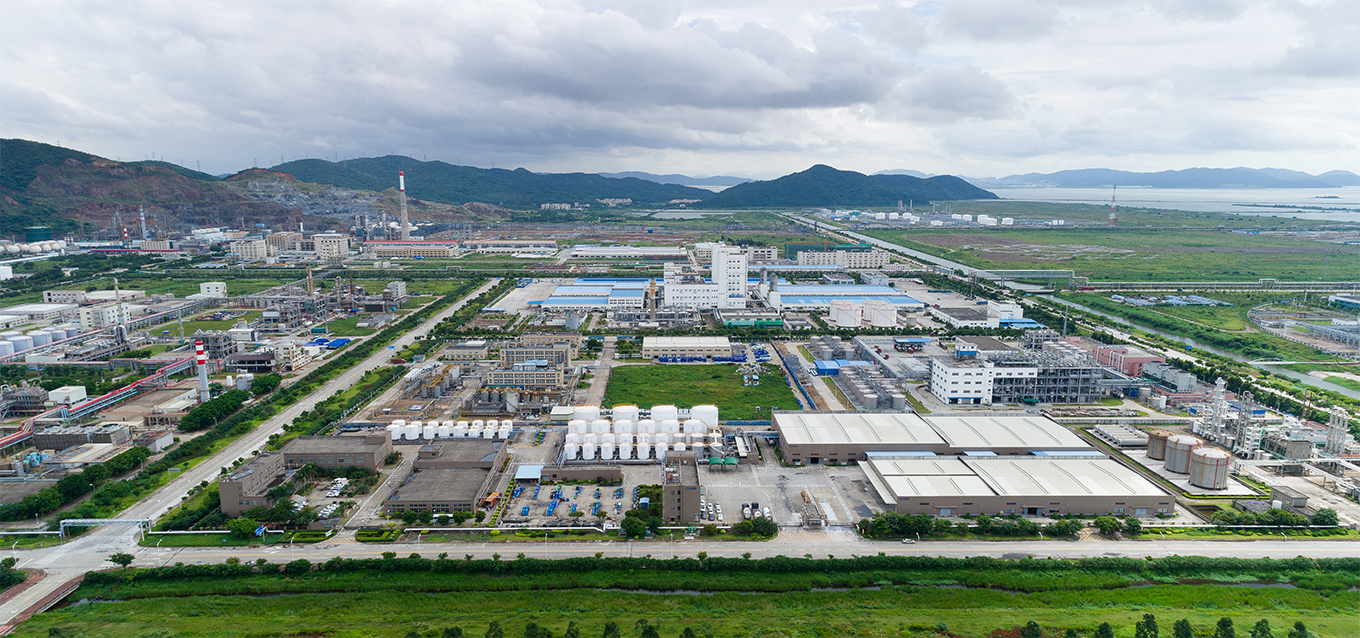PRODUCTS
Exploring the Versatility and Efficiency of Thermal Oil in Industrial Heating Systems for Sustainable Energy Transfer and Temperature Control Applications
2025-03-26
Thermal Oil: A Versatile Medium in Industrial Heating Applications In an era of innovation toward sustainable and efficient energy transfer solutions, industries worldwide have increasingly embraced a thermal oil as a flexible heat transfer medium. Introduced as heat transfer fluids, thermal oil is one of the key factors in temperature control of various applications including chemical and food processing. This characteristic allows it to work at high temperatures without the risk of vaporization or degradation, making it an essential part of modern industrial setups. Thermal oil boasts versatility, efficiency, and sustainable energy use, and this article will discuss all three aspects.
Explained — Measuring Thermal Oil Explained
Established as a heat carrier, thermal oil acts as a transport medium for thermal energy from a heat source to the process that needs to be heated in a controlled manner. Thermal oil is different from water or steam, it can be used at very high temperatures—400°C without a phase change. This property means that high pressure systems are not required, which decreases complexity and potential safety hazards.
Thermal oil has a tailored chemical composition that allows it to continue functioning even under extremely challenging conditions. Manmade and mineral-derived oils are designed to resist thermal breakdown, oxidation, and contamination from impurities. This makes thermal oil a very cost-effective solution for industrial applications as these properties guarantee long-term stability and low maintenance.
Improvement of Energy Efficiency and Sustainability
One of the biggest benefits of thermal oil is that it is incredibly energy efficient. Thermal oil systems do optimizes the heat requirement by keeping uniform temperatures with minimum losses. This is especially useful in applications where maintaining an accurate temperature is crucial like the case of the pharmaceuticals and petrochemicals industries.
In addition, thermal oil systems help in sustainability by reducing the emissions of greenhouse gases. The energy waste is minimal because there are ways of recapturing as well as reusing heat, which is a foundation of attractive green production. Thermal oil systems can also be paired with renewable energy systems in many instances, maximizing their environmental benefits.
Versatility Across Industries
Whether it is for industrial or commercial activities, the versatility of thermal oil allows it to be used for various applications. Thermal oil is used in the food industry in processes such as frying, baking and sterilization that require an even distribution of heat. Non-toxic and complies with very high food safety level standards.
Thermal oil provides the temperature gradients necessary for reactions to take place in the chemical and manufacturing sectors. Thermal Oil Solutions offers heating solutions for processes ranging from plastic molding and dyeing textile to sintering metal. The modular design enables customization to meet the individual needs of each industry.
Safety and Reliability in the Field
Safety is of utmost importance in industrial heating, and here thermal oil reigns supreme. Because of this high boiling point and low vapor pressure, it alleviates explosion or leak risk, which are the two chief challenges with steam-powered systems. Moreover, the non-corrosive nature of thermal oil helps prolong the operation of the heating plants.
Even enhanced reliability of thermal oil applications is achieved with advanced monitoring and control systems. The real-time temperature sensors and automatic adjustments prevent overheating so that it continues to perform efficiently and consistently. As a result, thermal oil is reliable for processes that are critical to a mission.
Looking Ahead: Prospects and Innovations
With industries focusing more on sustainable and efficient operations, the significance of thermal oil is likely to grow. Developing advanced formulations with high thermal stability and low environmental impact is in the focus of some researchers. Then there are innovations like nanofluids — thermal oils that are laced with nano-particles to increase heat transfer per unit volume even more.
And smart technologies — such as automatic IoT-enabled monitoring — will be integrated as well. Such developments will facilitate predictive maintenance and further optimize energy utilization, thereby cementing thermal oil as a mainstay of industrial heating plants.
Heat transfer oil is a sustainable solution for industrial heating which, I must say, is not as simple as it seems, but in conclusion: thermal oil is a versatile and efficient solution. Due to its unique properties and wide field of application, it is an important component of the quest for energy-efficient, environmentally sound production. Thermal oil will absolutely remain at the core of any further developments in industrial temperature control as long as technology takes swings.
Explained — Measuring Thermal Oil Explained
Established as a heat carrier, thermal oil acts as a transport medium for thermal energy from a heat source to the process that needs to be heated in a controlled manner. Thermal oil is different from water or steam, it can be used at very high temperatures—400°C without a phase change. This property means that high pressure systems are not required, which decreases complexity and potential safety hazards.
Thermal oil has a tailored chemical composition that allows it to continue functioning even under extremely challenging conditions. Manmade and mineral-derived oils are designed to resist thermal breakdown, oxidation, and contamination from impurities. This makes thermal oil a very cost-effective solution for industrial applications as these properties guarantee long-term stability and low maintenance.
Improvement of Energy Efficiency and Sustainability
One of the biggest benefits of thermal oil is that it is incredibly energy efficient. Thermal oil systems do optimizes the heat requirement by keeping uniform temperatures with minimum losses. This is especially useful in applications where maintaining an accurate temperature is crucial like the case of the pharmaceuticals and petrochemicals industries.
In addition, thermal oil systems help in sustainability by reducing the emissions of greenhouse gases. The energy waste is minimal because there are ways of recapturing as well as reusing heat, which is a foundation of attractive green production. Thermal oil systems can also be paired with renewable energy systems in many instances, maximizing their environmental benefits.
Versatility Across Industries
Whether it is for industrial or commercial activities, the versatility of thermal oil allows it to be used for various applications. Thermal oil is used in the food industry in processes such as frying, baking and sterilization that require an even distribution of heat. Non-toxic and complies with very high food safety level standards.
Thermal oil provides the temperature gradients necessary for reactions to take place in the chemical and manufacturing sectors. Thermal Oil Solutions offers heating solutions for processes ranging from plastic molding and dyeing textile to sintering metal. The modular design enables customization to meet the individual needs of each industry.
Safety and Reliability in the Field
Safety is of utmost importance in industrial heating, and here thermal oil reigns supreme. Because of this high boiling point and low vapor pressure, it alleviates explosion or leak risk, which are the two chief challenges with steam-powered systems. Moreover, the non-corrosive nature of thermal oil helps prolong the operation of the heating plants.
Even enhanced reliability of thermal oil applications is achieved with advanced monitoring and control systems. The real-time temperature sensors and automatic adjustments prevent overheating so that it continues to perform efficiently and consistently. As a result, thermal oil is reliable for processes that are critical to a mission.
Looking Ahead: Prospects and Innovations
With industries focusing more on sustainable and efficient operations, the significance of thermal oil is likely to grow. Developing advanced formulations with high thermal stability and low environmental impact is in the focus of some researchers. Then there are innovations like nanofluids — thermal oils that are laced with nano-particles to increase heat transfer per unit volume even more.
And smart technologies — such as automatic IoT-enabled monitoring — will be integrated as well. Such developments will facilitate predictive maintenance and further optimize energy utilization, thereby cementing thermal oil as a mainstay of industrial heating plants.
Heat transfer oil is a sustainable solution for industrial heating which, I must say, is not as simple as it seems, but in conclusion: thermal oil is a versatile and efficient solution. Due to its unique properties and wide field of application, it is an important component of the quest for energy-efficient, environmentally sound production. Thermal oil will absolutely remain at the core of any further developments in industrial temperature control as long as technology takes swings.
SUBSCRIBE
INQUIRY

